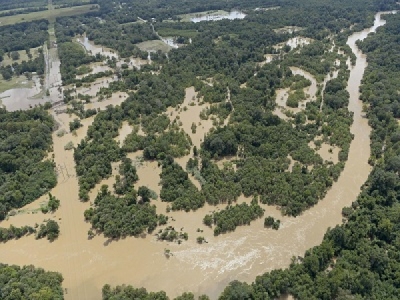
Posted on April 16, 2018
By Mark Ballard, The Advocate
A Louisiana House committee Thursday approved Senate-passed legislation that changes Louisiana Scenic Rivers Act to allow dredging in the Comite River, which flooded in 2016.
Senate Bill 490 would sidestep the permitting and evaluations necessary under the Louisiana Scenic Rivers Act for a tributary of the Amite River that was responsible for the August 2016 flooding of thousands of homes in the northern part of East Baton Rouge Parish. If the measure becomes law – and it now only has a couple more steps to go – then officials can more easily dredge the Comite River.
Central Republican state Sen. Bodi White, who sponsored the measure, told fellow legislators that they had the power. “You can put rivers in the Scenic Rivers Act, you can take rivers out of the Scenic Rivers Act,” he said.
White held up a permit from 1956, the year he was born and the last time the Comite was dredged. “It’s not like we do it every year,” White said.
“I’m fed up,” said Central City Councilman Wayne Messina. He described how his home flooded in a matter of hours after the Amite River filled up and the Comite River had nowhere to go. Water overflowed its Comite River banks and into his subdivision.
His home received $80,000 in damage and now at the age of 71, he has to repay a Small Business Administration loan for repairs, Messina said, adding that his home is unsellable because flood maps determine that insurance costs $1,500 a year.
Messina argued that dredging could lower flood water levels by at least two feet and probably more.
But Rebecca Triche, of the Louisiana Wildlife Federation, countered that the August 2016 floods were caused by several days of intense rains and no amount of dredging would have kept the water contained in river channels. Further, the legislation would take the state out of the permitting process, but not federal authorities. That means everyone would have to go to the federal government to discuss the impact of various regulations, she said.
Charles Davis, a retired hydrologist, said that making upstream channels more efficient would succeed only in moving the flood problem down stream. And while clearing large snags obviously is necessary, he said clearing all tangles of trees and vegetation from the sand-bottom rivers would impact recreational fishing because those areas provide the nutrients on which that wildlife lives.
The House Committee for Natural Resources hearing was heading into its second hour after about five opponents spoke, but a half dozen more wanted the microphone. Rep. Jim Morris, R-Oil City, made a parliamentary move to cut off debate and go ahead with the vote.
The committee then reported SB490 favorably without objection. It now goes to the full House.
Source: The Advocate





